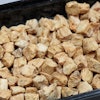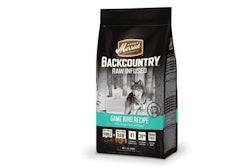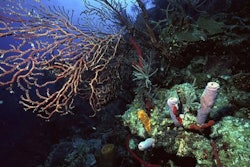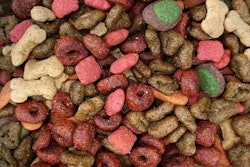Nestlé Purina PetCare’s announcement during SuperZoo 2015 that it will acquire Merrick Pet Care comes as no real surprise. Merrick’s current owner is Swander Pace Capital, a private equity firm, and the very nature of the private equity business is to buy and invest to sell again. That Swander Pace held on to Merrick for as long as it did (since 2010) might be more surprising.
During its ownership, the private equity firm has invested heavily in Merrick, allowing it to launch numerous new product lines, extensions and innovations, in addition to itself acquiring Castor & Pollux, maker of organic pet foods, in 2012. That helped Merrick climb to the 18th largest pet food company in the world, based on the latest data from Petfood Industry’s Top Pet Food Companies Database. (Though no terms for the Nestle-Merrick deal have been disclosed, our data from 2013 put Merrick at US$300 million in annual revenue.)
Merrick’s rapid growth, combined with its continual new product development and natural and organic brands, obviously made it an attractive acquisition target. I had heard rumors earlier this year that it was quietly on the market, though the scuttlebutt then, based on conventional wisdom, was that the buyer would be another private equity firm—much as ownership of Partner in Pet Food, a leading private label pet food manufacturer in Europe, changed hands from one private equity company to another earlier this year.
As for Nestlé Purina, some experts, including in the private equity world, had speculated that its lack of acquisition activity since its latest purchase—of Zuke’s Performance Pet Nutrition, maker of natural treats, in early 2014—was due to the high-profile, dueling lawsuits between Nestlé and Blue Buffalo. Another reason could be the well-publicized lawsuits against Nestlé’s Beneful brand. Needless to say, the company’s legal team has been very busy the past year or so.
Regardless, the more likely scenario is that Nestlé was simply waiting for the right, best opportunity to come along. Its purchase of Zuke’s provided a sizable foray into the ever-popular, fast-growing natural category; adding Merrick’s successful brands and full lines of natural and organic pet foods cements that, and then some.
What will be interesting to watch now is if Nestlé follows its promise to let Merrick continue to operate as an independent business, with “no planned changes to its management or operations.” Nestlé made the same promise with the Zuke’s acquisition and, to date, has kept it, at least by outward appearances. There is no Nestlé Purina branding on Zuke’s packaging, website or trade show booths. In fact, the name Nestlé Purina PetCare doesn’t appear anywhere on Zuke’s website that I can see; even a press release issued about six months after the purchase reiterating the treat maker’s “intention to maintain its past product development and distribution strategies” makes no mention of its new owner.
No doubt that press release was prompted by concerns from independent pet retailers that Zuke’s would abandon its dedication to the pet specialty channel and expand into others, such as mass market, where other Nestlé brands are sold. That doesn’t appear to have happened, either, though Zuke’s treats are available in pet chain stores.
Besides pet retailers, another, probably more important, group to consider is consumers and how they will react to the Nestlé-Merrick deal. Not surprisingly, comments were flying on social media within a few hours of the deal’s announcement. A Reddit board, for example, included some mostly positive references to the Nestlé-Zuke’s deal but also several negative comments about the Beneful lawsuits. There was even a reference to Iams’ acquisition of Natura in 2010.
Nestlé’s acquisition of Merrick also provides further confirmation that as the pet food industry continues to mature, consolidation will ramp up, just as it has in many other industries. That means the list of major global pet food players will continue to shift each year. Yet to be determined: whether this is positive for the industry, pet owners or the pets we all feed.



















